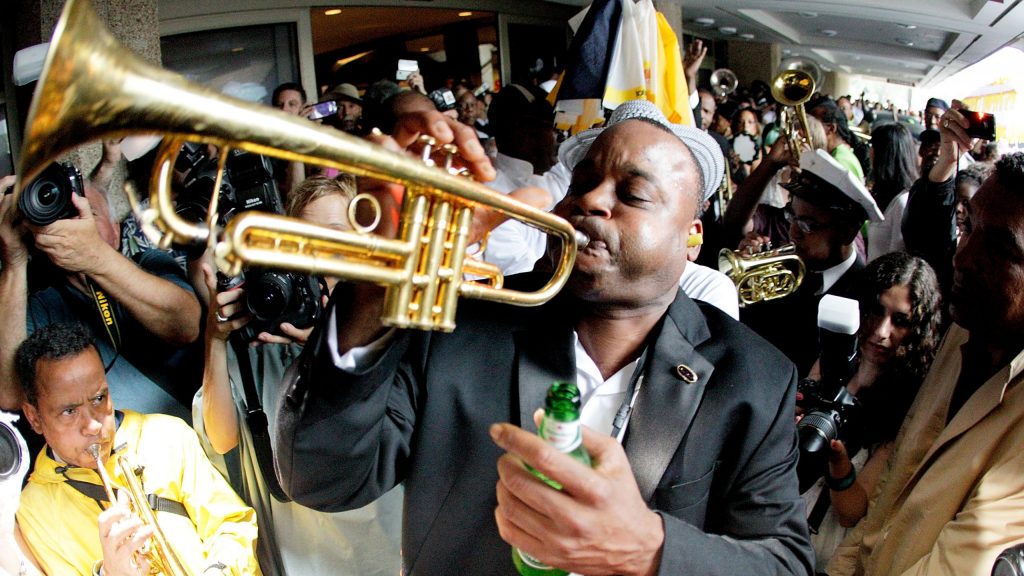[ad_1]
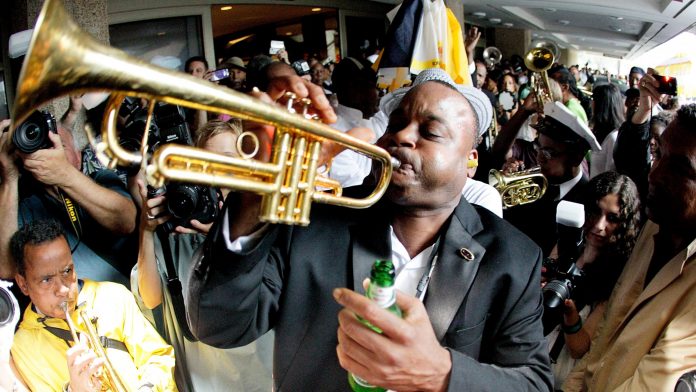
As Black communities get hit hard by the coronavirus pandemic, the way of life is changing right before our eyes.
In New Orleans, one of the most affected cities, the pandemic has put a hold on one of the city’s time-honored traditions of public jazz funerals, according to USA Today.
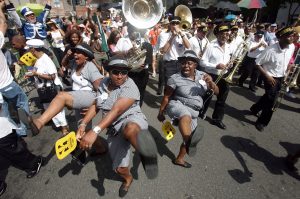
Dating back over a century, New Orleans is famous for how it honors its dearly departed. Families march the deceased down to the cemetery while musicians play a somber dirge. After the burial is complete, a second line is formed and joyous uptempo music is played as citizens join in to celebrate the life of the dead.
READ MORE: Jazz great Ellis Marsalis Jr. dead at 85; fought coronavirus
Unfortunately, such funerals traditions are now on hold as communities and health officials try to get a grip on the fast-spreading virus. Additionally, the annual New Orleans Jazz & Heritage Festival, usually held in the last weekend of April, has been canceled due to the pandemic.
Orleans Parish has recorded nearly 400 COVID-19 related deaths as of Saturday afternoon, according to data from Johns Hopkins University. The death toll is up from 276 reported on April 13.
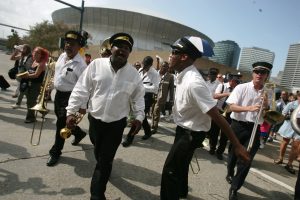
A special death task force was formed in the city, which includes New Orleans’ emergency preparedness director Collin Arnold, to respond to the crisis.
“We’re a very tight-knit community of music and festivity, and I think that extends to our funerals, our jazz funerals and second lines,” Collin stated. “And unfortunately those really can’t occur right now. This is an unprecedented event, and you just have to look at the numbers to know this is necessary.”
The death toll has grown so severe that there are currently 14 refrigeration trailers parked outside of the city’s coroner’s office.
READ MORE: New Orleans DJ dead at 44 after testing positive for coronavirus
Matt Sakakeeny, an ethnomusicologist at Tulane University, says the lack of jazz funerals has been deafening.
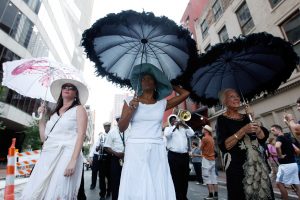
“Mourning is happening in the homes,” Sakakeeny said. “You can trace the impact of the health crisis in New Orleans by the silence of the city — no brass bands, no funerals, no church services happening.”
[ad_2]
Source link

